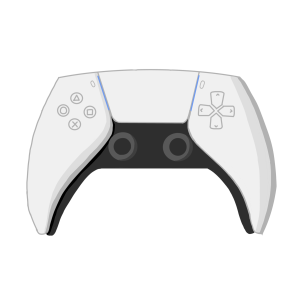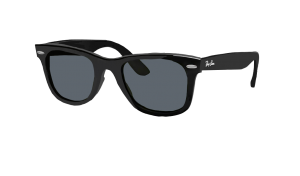STEM Scene: Sept. 14
September 14, 2021
Australia passes controversial surveillance bill

The Australian government passed the Surveillance Legislation Amendment (Identify and Disrupt) Bill 2021 on Aug. 25. The bill, intended to disrupt cybercrime, created three new types of warrants: data disruption warrants, network activity warrants and account takeover warrants.
A data disruption grants law enforcement agencies the power to add, delete, copy or modify data on devices. Network activity warrants allow them to monitor traffic on online networks and communication platforms. Account takeover warrants can be used to take control of or impersonate online accounts. All three of these warrants can be obtained either in court or via an emergency authorization process, which does not require court approval.
Digital rights activists expressed concerns about the scope of the bill to the legislature, claiming that the bill would allow individual law enforcement officers to conduct surveillance on civilians, falsify evidence of criminal activity and impersonate online account owners using the emergency authorization process.
China limits online gaming time for minors

China has restricted gaming time to three hours per week for citizens under 18 years of age. Young gamers will only be allowed to play from 8 p.m. to 9 p.m. on Fridays, Saturdays, Sundays and holidays. Previously, minors were allowed 1.5 hours of gaming daily and three hours on holidays. State officials have stated that the goal is to counteract gaming addiction in teens.
The change comes as part of China’s crackdown on private industries, particularly in the tech sector. Video game publishers and studios will be required to employ age verification with real names for all Chinese players outside of the permitted gaming hours. China has the largest gamer population of any country, and the majority of Chinese minors are active players. The news of the restriction has caused shares of gaming companies such as Ubisoft and Tencent to fall. Users of the Chinese social media site Weibo have called the new limit overly restrictive and complained that it will hinder China’s success in the growing eSports industry.
Perseverance rover collects its first Martian rock

NASA’s Mars rover Perseverance has successfully extracted a sample of a Martian rock after a failed attempt. Perseverance was initially set to extract a rock sample on Aug. 6, but the rock crumbled before being drawn into the rover.
On Sept. 1, Perseverance successfully drilled a sample out of a rock named Rochette before sealing it inside a sample chamber five days later. Perseverance collected another sample from the same rock on Sept. 8. The samples, named Montdenier and Montagnac, are two of around 35 samples that NASA hopes to collect from the Jezero Crater. Rochette contains a large proportion of basalt and volcanic minerals, which will make radiometric dating possible. Analysis of the samples could answer questions about the disappearance of Jezero Lake and the existence of life on Mars.
Facebook develops “smart” glasses

Facebook released its first line of smart glasses on Sept. 9. The Ray-Ban Stories, starting at $299, are augmented reality (AR) glasses that can play music, take phone calls and capture photos or videos. The glasses also include a voice assistant named Facebook Assistant that can help capture hands-free photos. Andrew Bosworth, vice president of augmented and virtual reality at Facebook, claims that unlike previous smart eyewear products such as Google Glass and Snap Spectacles, the Ray-Ban Stories focus more on fashion than technology.
The company has stated that the glasses include warnings against using the technology in private areas such as bathrooms and that the glasses will use an indicator light to show others when the camera is active. Facebook CEO Mark Zuckerberg said that this launch is part of the company’s initiative to create a “metaverse” of virtual experiences that integrate with the real world.


















![“[Building nerf blasters] became this outlet of creativity for me that hasn't been matched by anything else. The process [of] making a build complete to your desire is such a painstakingly difficult process, but I've had to learn from [the skills needed from] soldering to proper painting. There's so many different options for everything, if you think about it, it exists. The best part is [that] if it doesn't exist, you can build it yourself," Ishaan Parate said.](https://harkeraquila.com/wp-content/uploads/2022/08/DSC_8149-900x604.jpg)




![“When I came into high school, I was ready to be a follower. But DECA was a game changer for me. It helped me overcome my fear of public speaking, and it's played such a major role in who I've become today. To be able to successfully lead a chapter of 150 students, an officer team and be one of the upperclassmen I once really admired is something I'm [really] proud of,” Anvitha Tummala ('21) said.](https://harkeraquila.com/wp-content/uploads/2021/07/Screen-Shot-2021-07-25-at-9.50.05-AM-900x594.png)







![“I think getting up in the morning and having a sense of purpose [is exciting]. I think without a certain amount of drive, life is kind of obsolete and mundane, and I think having that every single day is what makes each day unique and kind of makes life exciting,” Neymika Jain (12) said.](https://harkeraquila.com/wp-content/uploads/2017/06/Screen-Shot-2017-06-03-at-4.54.16-PM.png)








![“My slogan is ‘slow feet, don’t eat, and I’m hungry.’ You need to run fast to get where you are–you aren't going to get those championships if you aren't fast,” Angel Cervantes (12) said. “I want to do well in school on my tests and in track and win championships for my team. I live by that, [and] I can do that anywhere: in the classroom or on the field.”](https://harkeraquila.com/wp-content/uploads/2018/06/DSC5146-900x601.jpg)
![“[Volleyball has] taught me how to fall correctly, and another thing it taught is that you don’t have to be the best at something to be good at it. If you just hit the ball in a smart way, then it still scores points and you’re good at it. You could be a background player and still make a much bigger impact on the team than you would think,” Anya Gert (’20) said.](https://harkeraquila.com/wp-content/uploads/2020/06/AnnaGert_JinTuan_HoHPhotoEdited-600x900.jpeg)

![“I'm not nearly there yet, but [my confidence has] definitely been getting better since I was pretty shy and timid coming into Harker my freshman year. I know that there's a lot of people that are really confident in what they do, and I really admire them. Everyone's so driven and that has really pushed me to kind of try to find my own place in high school and be more confident,” Alyssa Huang (’20) said.](https://harkeraquila.com/wp-content/uploads/2020/06/AlyssaHuang_EmilyChen_HoHPhoto-900x749.jpeg)









